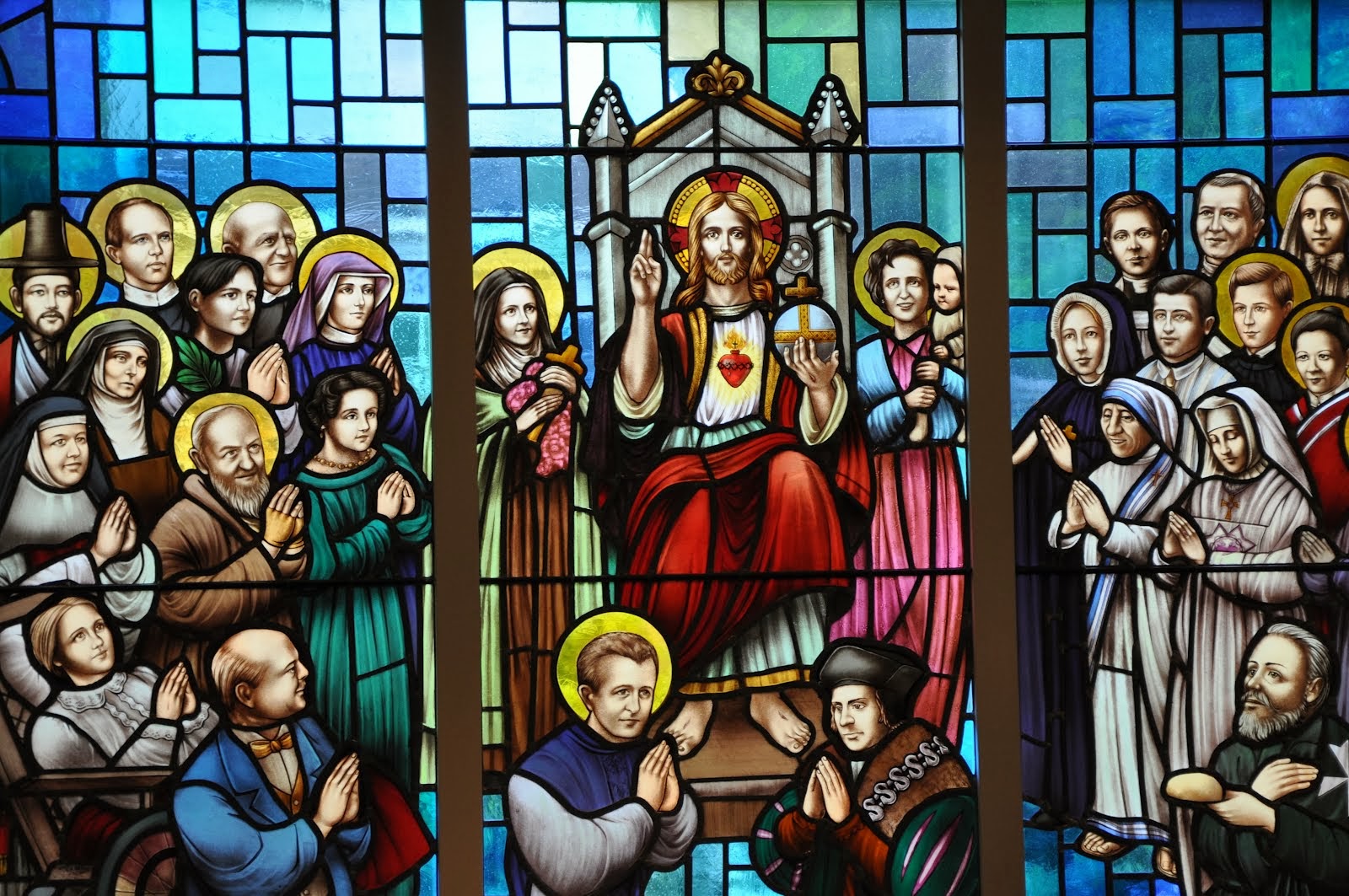
“The Sacrament which you receive is effected by the words of Christ. Now if the words of Elijah had the power to call down fire from heaven, will not the words of Christ have the power to change the character [species] of the elements? You have read, in the account of the creation of the universe: ‘He Himself spoke, and they were made: He commanded, and they were created’. The words of Christ, then could make out of nothing that which did not exist; can it not change things which do exist into what they are not?” St. Ambrose of Milan (4th century, Doctor of the Church)
“In the Old Testament also there was the Bread of the Presence; but this, as it belonged to the Old Testament, has come to an end; but in the New Testament there is bread of heaven, and a cup of salvation, sanctifying soul and body…Consider therefore the bread and the wine not as bare elements, for they are, according to the Lord’s declaration, the Body and Blood of Christ; for even though sense suggests this to you, yet let faith establish you. Judge not the matter from the taste, but from faith be fully assured without misgiving, that Body and Blood of Christ have been vouchsafed to you.” St. Cyril of Jerusalem (4th century, Doctor of the Church)
“This Body, even lying in a manger, the Magi reverenced. Indeed, men profane and barbarous, leaving their country and their home, both set out on a long journey, and when they came, with fear and trembling worshipped Him. Let us, then, at least imitate those barbarians, we who are citizens of heaven. For they indeed when they saw Him but in a manger, and in a hut, and no such thing was in sight as you behold now, drew nigh with great awe; but you behold Him not in the manger, but on the altar, not a woman holding Him in her arms, but the priest standing by, and the Spirit with exceeding bounty hovering over the gifts set before us. You do not see merely this Body Itself as they did, but you know also Its power…” St. John Chrysostom (4th-5th centuries, Doctor of the Church)
“He took flesh from the flesh of Mary. He walked here in the same flesh to be eaten unto salvation. But no one eats that flesh unless he first adores It…We do sin by not adoring.” St. Augustine of Hippo (4th-5th centuries, Doctor of the Church)
“For when the Lord says, ‘unless you have eaten the flesh of the Son of Man, and drunk His blood, you will not have life in you’, you ought so to be partakers at the Holy Table, as to have no doubt whatever concerning the reality of Christ’s Body and Blood. For that is taken in the mouth which is believed in Faith, and it is vain for them to respond Amen who dispute that which is taken.” Pope St. Leo the Great (4th-5th centuries, Doctor of the Church)
“But one can put it well thus, that just as in nature the bread by the eating and the wine and the water by drinking are changed into the body and blood of the eater and drinker, and do not become a different body from the former one, so the bread of the table and the wine and the water are supernaturally changed by the invocation and presence of the Holy Spirit into the Body and Blood of Christ, and are not two but one and the same…The bread and the wine are not merely figures of the Body and Blood of Christ (heaven forbid!) but the deified Body of the Lord Itself: for the Lord has said, ‘This is My Body,’ not, this is a figure of My Body; and ‘My Blood,’ not, a figure of My Blood…” St. John of Damascus (7th-8th centuries, Doctor of the Church)
“Than His Supper can anything be more precious?…Christ Himself, our very God. Than this sacrament can anything be more marvelous?” St. Thomas Aquinas (13th century, Doctor of the Church)
“If He had chosen some rare or costly food, the poor would have been deprived of this, of Him. No, Jesus would come under the form of bread, which costs little and can be found everywhere, so that He would be most accessible to all.” St. Alphonsus Liguori (18th century, Doctor of the Church)
“When the eagle wants to accustom its young to fly at great altitudes, it offers them their food while flying higher and higher as they draw nearer, makes them gradually reach the very top of the sky. Thus Jesus, the divine Eagle, comes toward us, bringing us the food we need. Then He rises above us and invites us to follow Him. He fills us with sweetness so as to make us long for the happiness of heaven…” St. Peter Julian Eymard (19th century)
“How could I, who am so weak and half-hearted, live without this Eucharistic food?” St. Pio of Pietrelcina (19th-20th centuries)
“In the Eucharist we have Jesus, we have His redemptive sacrifice, we have His resurrection, we have the gift of the Holy Spirit, we have adoration, obedience and love of the Father. Were we to disregard the Eucharist, how could we overcome our own deficiency?” Pope St. John Paul II (20th-21st centuries)
